Search

The 20th July 1944. Operation Valkyrie is underway. Conspirators race to change the course of history forever. Will the plot succeed or will Adolf Hitler escape unharmed…once again?

British intelligence undertook an audacious operation to listen in on the private conversations of 10,000 German prisoners of war without their ever knowing they were being overheard. The prisoners’ unguarded reminiscences and unintentional confessions have only just come to light, and prove how closely the German army were involved in the atrocities of the Holocaust. British intelligence requisitioned three stately homes for this epic task, and converted each into an elaborate trap. The 100,000 hours of conversation they captured provided crucial intelligence that changed the course of the war, and revealed some of its worst horrors, from rape to mass executions to one of the earliest bulletins from the concentration camps. But when the fighting ended, the recordings were destroyed and the transcripts locked away for half a century. Only now have they been declassified, researched and cross-referenced.

Sadly our world is divided on the basis of race, religion, region and caste and violence became the norm of the day. What can we do to stop the violence that is committed by bigotry? One thing…if we imagine ourselves in the shoes of our victims.

The night of November 8, 1923, is arguably the most significant and transformative in the history of the twentieth century. A localised uprising in the Bavarian capital of Munich, led by a small man with a toothbrush moustache and a poisonous yet compelling grandiloquence, would have repercussions that would lead to the political shackling of an entire nation, the most abhorrent crimes of the century and a world war. You might say, Adolf Hitler came of age amid the smell of sweat and sawdust of a Munich beer hall. In the political chaos of 1923, he was a local irritant, gaining popularity among workers and soldiers, the ethos of his Nazi Party spreading like a virus. His first attempt at attaining true power came with an attempted putsch on the already separatist government of Bavaria, which left him imprisoned.
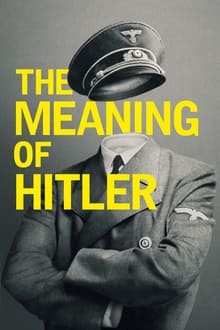
This provocative consideration of the lasting influence and draw of Hitler provides insight into the resurgence of white supremacy, antisemitism, and the weaponization of history.

A biographical and historical documentary which covers the life and death of one of the most infamous and evil men of all time, Adolf Hitler and how his death ultimately ended the war.

When Hitler committed suicide in his bunker in Berlin, he managed to do what many others had tried to do for 20 years. This film explores how the fate of Europe and countless lives may have been very different if it hadn’t been for the luck of the devil.

A spotlight on an often forgotten episode in British history: Nazi Germany’s occupation of the British Channel Islands.

How rich was Hitler really, and how did he waste his money, both while living and in his will?

They grew up under the Nazi regime. They pledged to give their lives for Hitler. They were fanatics who would not be stopped. They were the 20,000 teenagers who made up the 12th SS Panzer Division. Unleashed in France to halt the …

History tells us that Hitler died on April 30th 1945 by committing suicide with a single gunshot to the head; but what if history is wrong? Based on interviews with eye witnesses and years of dedicated research, this film dramatisation explores the possibility that Hitler didn’t die in Germany at the end of the war, but instead escaped from Berlin by air and made his way to Argentina. This is the gripping story of what might have happened; the CIA s possible involvement, his life in Patagonia, the escape routes and the astonishing fact that Hitler may have had two daughters.

Three Canadian Holocaust survivors, with unanswered questions from their past, journey back to hometowns, killing sites, and hiding places in search of clues in this new film. Maxwell wonders what happened to a baby he saved in a forest in 1943. Helen wants to know more about the fate of her brother. Rose wants to honour her mother and father by going to the places where they spent their final days. The survivors who appear in this film came of age during the Holocaust and carry the burden of knowing they are the last living link to it. This film delivers a powerful warning from history, inspiring stories of survival, and a last chance to solve lingering mysteries

Two explorers investigate underground tunnels that are believed to have been built by Nazis with mysteries yet to be discovered.


This gripping docuseries examines Adolf Hitler and the Nazis’ rise, rule and reckoning from pre-WWII to the Holocaust to the Nuremberg trials.

Their family name alone evokes horror: Himmler, Frank, Goering, Hoess. This film looks at the descendants of the most powerful figures in the Nazi regime: men and women who were left a legacy that indelibly associates them with one of the greatest abominations in history. What is it like to have grown up with a name that immediately raises images of genocide? How do they live with the weight of their ancestors’ crimes? Is it possible to move on from the crimes of their ancestors?

In 1963, 22-year-old Bertrand Blier invited 11 of his peers to come to a film studio and talk about their lives. The record of what was said is a discussion of values that remains relevant and fascinating today. The footage was shot just five years prior to May 1968, and the atmosphere of that time is clearly discernible: these young people may not yet be revolutionaries, but there is clearly a ferment in the air.

In the summer of 1931, with Germany on the brink of economic collapse, and the city of Berlin turning into a paramilitary war-zone, audacious young prosecutor Hans Litten (Stoppard) chose to summon a star witness to a trial of Nazi thugs. In spite of the risk to his own safety and against the advice of those who love him, Litten forced rising political star Adolf Hitler (Hart) to make a sensational appearance in the witness stand of Berlin’s central criminal court. Litten aimed to expose the true character of Hitler and his politics to the German public, to reveal his hypocrisy and his violent ambitions, and in doing so, halt the electoral success of the Nazi Party. In a humiliating and hostile cross-examination, Hitler was forced to account for his political beliefs, his contempt for the law and his desire to destroy German democracy. For a brief moment, Hitler’s political future was genuinely in the balance.
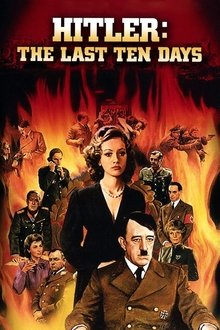
Hitler: The Last Ten Days takes us into the depths of der Furher’s Berlin bunker during his final days. Based on the book by Gerhard Boldt, it provides a bleak look at the goings-on within, and without.

In Third Reich, the abuse of drugs made commanders and soldiers feel invincible. The Führer himself took them on daily basis. This is the unbelievable story of the D-IX project and of methamphetamines, which, abundantly furnished to soldiers, changed the course of history.

They grew up under the Nazi regime. They pledged to give their lives for Hitler. They were fanatics who would not be stopped. They were the 20,000 teenagers who made up the 12th SS Panzer Division. Unleashed in France to halt the Allied invasion, they would sow terror and destruction in their wake. Historical colorized archives and a handful of survivors tell us this story.

When the British army looks set to defeat Mussolini’s Italian forces, Hitler sends reinforcements; the Afrika Korps led by General Rommel. The Desert Fox is on winning form until Montgomery, the British commander, sets up a plan to crush his opponent. After the American landing in North Africa, the Axis armies have no choice but to surrender and put an end to the Desert War.

In a tale of double agents and decoys, this documentary reveals, for the first time, the story of King George VI’s elaborate ruse to divert German attention away from the Normandy landings in 1944.

Secluded deep in the Bavarian Alps, Hitler, his family, and closest allies hid away- issuing orders for armies across Europe while they relaxed, dined, and enjoyed an otherworldly peace.

Germany, 1933: Little Anna Kemper lives with her family in Berlin. Since her father, a famous theater critic, is an open opponent of the National Socialists, he has to flee to Zurich after Hitler’s rise to power. The mother, Anna and her twelve-year-old brother soon follow him. Because there is hardly any time to prepare for the escape, Anna has to leave her beloved stuffed rabbit in a hurry. But the family does not find a permanent home in Switzerland either. Again and again Anna has to adapt to the constantly changing circumstances, face new challenges with her family and face great privations. Nevertheless, Anna tries not to lose braveness.

In the darkest days of World War II, St. Peter’s was shrouded in the shadow of the swastika. But even as the Führer surrounded him, the Pope was plotting a secret counter-offensive. Wartime Pontiff Pius XII has been derided for his public silence about the Holocaust. But evidence suggests his silence may have been subterfuge.


In this new stand-up special, Norm Macdonald delivers sly, deadpan observations from an older — and perhaps even wiser — point of view.
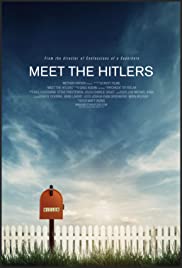
What would it be like if your last name was Hitler? Director Matt Ogens seeks that answer by intimately portraying a diverse group of individuals with that same unfortunate name.
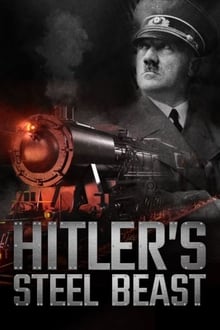
Trace the history of Hitler’s armored private train, a 15-car mobile headquarters boasting state-of-the-art communications and anti-aircraft cannons.

Hitler, Nazi propaganda and 1936 Berlin Olympics are put under the microscope to uncover hidden truths and the historical legacy of those games.
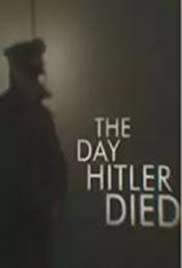
The story of Hitler’s final hours told by people who were there. This special features exclusive forgotten interviews, believed lost for 65 years, with members of Hitler’s inner circle who were trapped with him in his bunker as the Russians fought to take Berlin. These unique interviews from figures such as the leader of the Hitler Youth Artur Axmann and Hitler’s secretary Traudl Junge, have never before been seen outside Germany. Using rarely seen archive footage and dramatic reconstruction, this special tells the story of Adolf Hitler’s final days in his Berlin bunker.
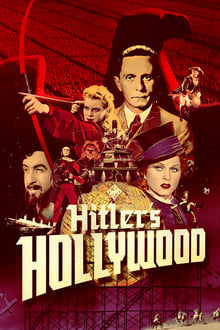
Film journalist and critic Rüdiger Suchsland examines German cinema from 1933, when the Nazis came into power, until 1945, when the Third Reich collapsed.

Far outside what’s normally taught as “history”, this 6-hour documentary attempts to explain what’s normally glossed over – Germany’s actions prior to WWII, Hitler’s popularity, the support of the Nazis by the Germans, the basis for hardline Nazi stances against Jews, and why Nazism was such a danger to the established world powers. It chronicles the German WWI defeat, communist attempts to take over Germany; hyperinflation during the Weimar Republic, widespread unemployment and misery that served as the foundation of Nazi principles, and Hitler’s amazing rise to power. It also reveals a personal side of Hitler: his family background, his artwork and struggles, and what motivated him to pursue a career in politics. While open to criticism for being “pro-Nazi” in its perspectives, the documentary does present many factual foundations for those perspectives, highlighting an endless list of hypocrisies and double-standards imposed on Germany in the years before, during, and after WWII.
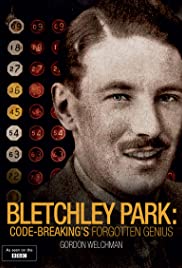
Gordon Welchman was one of the original elite codebreakers crucial to the allies defeating the Nazis in World War II. He is the forgotten genius of Bletchley Park. Filmed extensively at Bletchley Park, the centre for codebreaking operations during World War II, this documentary features the abandoned buildings where thousands of people worked tirelessly to crack the codes. Post-war, Welchman moved to the US to be at the centre of the computer revolution. Recently released top secret documents reveal that the case of Gordon Welchman reached the desk of the British prime minister, Margaret Thatcher, and then led to questions being asked in the House of Commons after Welchman’s untimely death. Welchman’s legacy continues to this day. Welchman’s pioneering work in the field of traffic analysis led directly to the modern secret surveillance state, and particularly the use of metadata – as revealed by whistleblower Edward Snowden.
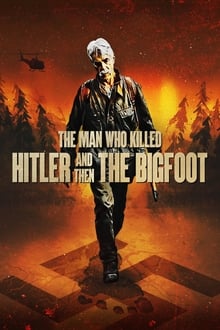
A legendary American war veteran is recruited to hunt a mythical creature.